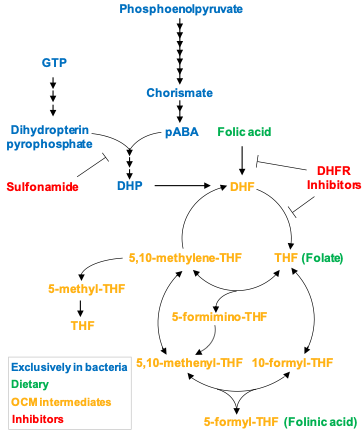- Home
- Redefining folate status




Redefining folate status
Humans are auxotrophic for folates. There is emerging evidence that suggests a correlation between circulating folate status and metabolic disease onset. Particularly, excessive folate has been shown to influence risk of cardiovascular disease, colorectal cancer, and IBD, with pediatric folate levels directly correlating with severity of inflammation. Folate status is characterized by the amount of folate in systemic circulation. However, the gut harbors the highest concentration of folate in the body, at levels of ~1 mM, which is ~2000-fold higher than in blood. An analysis of folate levels in the gut of patients and disease animal models of metabolic syndrome is severely lacking.

Dietary folates can also modulate the microbiome, which can directly impact intestinal homeostasis. With different countries implementing divergent policies on folate fortification, the impact of high folate consumption on the microbiome and manifestations of metabolic syndrome warrants further study.
